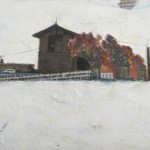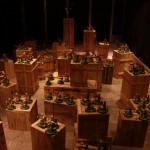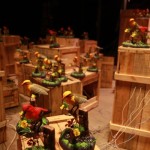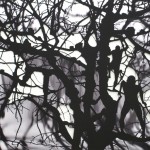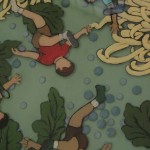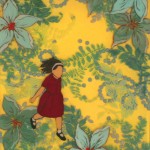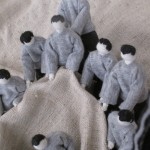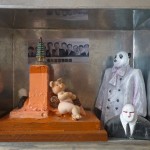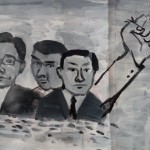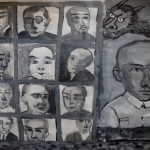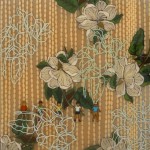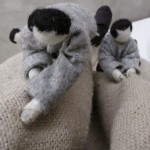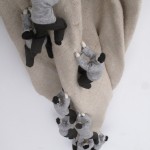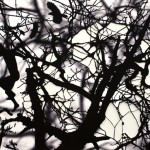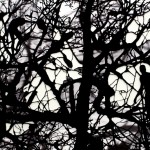Collective Consciousness
August 6th, 2011 - August 30th, 2011
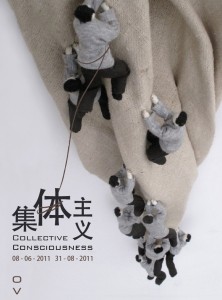
China of course has a very distinct understanding of collectivism due to its historical context, but with this show we move beyond the historical definition to look at what it means to be part of a social group – be it a family, peer group, social networking group or professional organization. Is being part of a group unifying or can it be alienating as well? Is man hardwired to be a “social animal” or do the competitive instincts of individuals give them an edge in survival? Are extremely individualistic actions a form of antisocial behavior or selfishness or are they an expression of human intelligence and creativity? At a moment in history when we place a huge value on individualism, there is no better time to examine the mechanics of group behavior.
Artists
Monika Lin explores the pressure we face as individuals to fit ourselves into a socially prescribed psychological mean, to weed out any unpleasant feelings and be “happy like everyone else.”
Chen Hangfeng looks at the idea of conformity and individuality with his work “Cups” 2010, an installation featuring a number of “cha beizi” collected from local work units resting on a table which is repeatedly disturbed by the striking of a hammer.
Qian Rong, examines how one small group can hold great sway over a collective with a series of photos and sculptures which bring up collectivist nostalgia.
Ji Wenyu and Zhu Weibing tackle the conflicts inherent in group dynamics, the struggles of those on the bottom to climb up and those on top to maintain their positions.
Ed Pien traverses the murky terrain between collectivism and individualism – with a series of striking paper cuts. His figures alternate between lurking on the fringes of society and choosing to leave it all behind.
Robert Davis takes a more optimistic view with a series of mixed media works inspired by Jonne Donne’s poem, “No Man is an Island.” In this series Davis posits that taking an active role in the collective is necessary for human survival.
Li Xiaofei takes a humanistic look at the cold and inhumane world of the factory with a series of videos with factory workers and foremen which explore how work has become the new collective – one which consumes the private life of the individual.
João Vasco Paiva looks at how our group behaviour has become automatic or almost mechanized with an installation work featuring a real myna bird who has learned to mimic number of electronic birds.
Zhou Xiaohu looks at China’s collective zeal for learning English in Crazy English Camp Tate, where he brings China’s famous language school to the UK – making an ironic comment on the collectivist performative learning techniques of Crazy English and a sly poke at the new world order.
Virginie Lerouge Knight asks us to examine our personalities and values, placing the words “maveric,” “selfish” and “creative” alongside “follower,” “traditional,” and “modest” on spectrum between individualism and collectivism.

